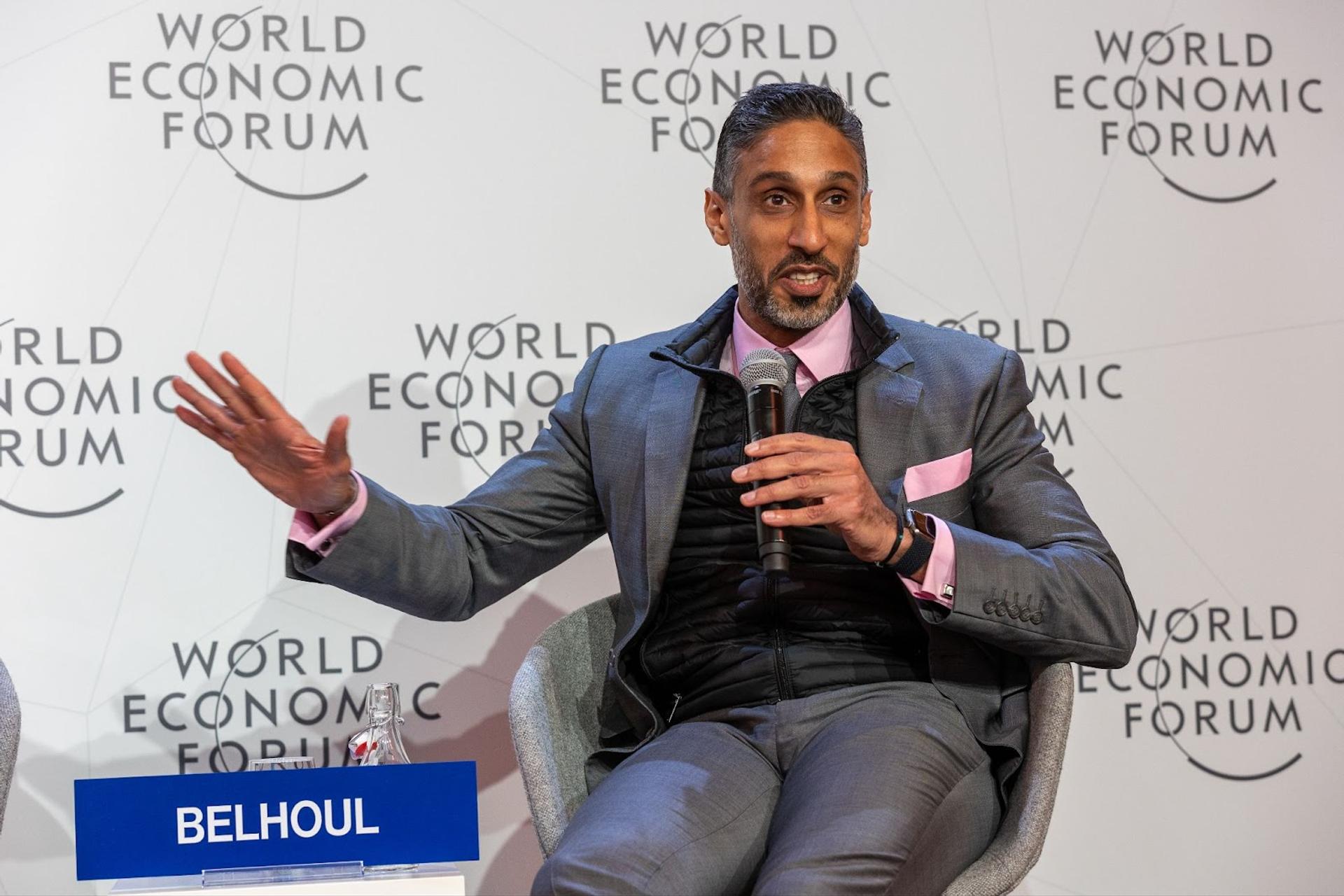The News
Dubai’s economy relies on staid industries — aviation, logistics, and construction. But its future success is dependent on innovation: That’s the case put forward by Khalfan Belhoul, the chief executive officer of the Dubai Future Foundation.
The UAE’s government is applying business lessons to prioritize foresight and understand its risks, he said in an interview. Financial resources and people are crucial to execution, but long-term goals and a mindset to accept risks are equally important: “The further you look, the blurrier the vision becomes — but if you get it right, the rewards are immense,” Belhoul said.
Speaking at the annual Dubai Future Forum — set in the Museum of the Future and packed with self-proclaimed futurists — Belhoul explained the type of “out-of-the-box thinking” the city’s leadership regularly engages in: At a recent gathering, they discussed transforming the entire city into a duty-free zone for tourists and customizing education. “Some of these ideas are tested and deployed first in Dubai, setting the bar for innovation,” Belhoul said.
In this article:
Mohammed’s view
It’s easy to mock the grandiose vision set forth by UAE officials, especially for those who witnessed Dubai’s real estate and financial crash 15 years ago and recognize that the city’s economy is not driven by space exploration, AI, and advanced manufacturing. But even the perpetually skeptical — myself included, and I’m not alone — must recognize that Dubai’s success isn’t an accident.
There’s a reason why millions of people have flocked to this city, despite skyrocketing rents, gridlocked traffic, intolerable heat… and it’s not for the Burj selfie or restaurant scene. Officials like Belhoul and entities like the one he runs keep innovating, to make the city as comfortable, safe, productive, and enjoyable as possible.
The ground floor of Emirates Towers — once home to high-end clothing brands and a karaoke bar — has been transformed into a hub of innovation. Startup incubators, a robotics lab, and other concepts are being tested in the open, with government officials, including the prime minister, AI minister, and Dubai crown prince, frequently passing through on their commute to their offices in the tower. It may be symbolic, but the message is clear: The UAE’s leadership managed to steer their country through the resource curse, and they aren’t going to succumb to the innovator’s dilemma.
Room for Disagreement
Dubai is in better financial shape today than it was in 2009, when the global financial crisis exposed its debt-fueled expansion and forced it to seek a bailout from its neighbor. However, this improved position does not make it immune to shocks. Trade routes can shift — competition in ports and aviation within the region is intensifying — and a population dominated by expatriates, with little prospect of gaining citizenship, can quickly vanish. An economy built on the movement of people and goods can’t withstand such pressures for long.
Nascent industries — such as space exploration and robotics — remain niche. Over the past two decades, the UAE has invested 23 billion dirhams ($6.2 billion) in its space program, achieving significant milestones, including reaching Mars. While impressive, the space industry remains a minor component of the broader economy. And despite enthusiasm around technology and AI, the intellectual property and trillion-dollar tech giants remain firmly rooted in the US, not the UAE.
The challenge for Dubai is significant: Maintaining its status as a critical hub of connectivity in a region where competitors aim to displace it. The risks of sustaining — and defending — this position without the benefit of oil revenues are considerable.
Know More

Keeping with the theme of innovation, Belhoul sees the need for Dubai and the UAE to lead on digitalization and artificial intelligence. He predicts that within the next year, an artificial intelligence-created board member will join a Fortune 500 company, a development he says will force societies to ask questions about the nature of leadership: Will AI simply optimize for efficiency, or will it have vision?
This aligns with the UAE’s broader strategy to position itself as a hub for regional and global economies — not just to collect a toll, but to expand markets for Emirati companies. The country’s population of 10 million “isn’t enough,” he said, and even the Middle East doesn’t provide enough scale. UAE companies need to think globally and require a hub that provides that interconnectivity necessary to grow beyond their home markets, Belhoul said.
